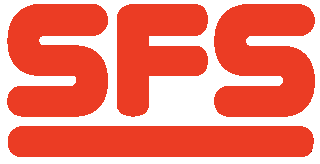Neil Kirwin, Southern Specification Manager at SFS, discusses why engaging with building product manufactures
can help with planning ahead to overcome potential supply chain challenges
that could threaten specifications in the building industry.
Engaging with building product system and manufacturers can deliver an essential level of support to specifiers. That includes planning ahead to overcome potential supply chain challenges that could threaten whether the desired system even makes it onto the building.
If a solution is specified, then that means it contributes to a project’s goals – be those goals around thermal performance, fire safety, sustainability or corrosion.
A robust specification is one where all parties understand the value that a particular solution brings to the project. If it is too easy to substitute the preferred solution with a different one, then the specification was not robust, and it is more likely that performance gaps will occur in the finished building.
Defining market engagement
This is to describe research and dialogue with potential suppliers before a contract notice for a specific procurement requirements or project is published – or before a procurement is otherwise formally commences.
Tips to overcome supply chain challenges
All SFS technical papers and blog posts around robust specification and engagement with technical expertise advocate engaging as early in the project as possible.
It can often feel like the only time to engage with manufacturers is during a live project. But that is when timescales are most compressed. Everything is needed urgently at almost every stage. Stage 4 of the RIBA Plan of work is a particular bottleneck. Typically, the technical design only starts at this point. The people who were involved in the earlier stages are unlikely to have done preliminary technical design, and don’t go on to participate in the subsequent detailing.
As a result, it leaves little room for engagement with expertise that would be really helpful. If a manufacturer is consulted at all at this point, it might be too late for them to offer a solution that the project would benefit form. In the current market conditions in the construction industry, the supply chain challenges we’ve all become so familiar with make it unrealistic to expect that manufacturers and suppliers will have excess stock to fulfil unexpected orders. Undertaking some technical design at an earlier stage of the project timeline can help with planning, especially on large projects. Some designers and specifiers prefer to maintain an open specification, but shortages of raw materials and stock are affecting all supply chains.
When global demand for the construction sector continues to increase, there is no reason to expect that to change.
What does engagement outside live projects live projects look like?
What if the best time to speak to expert product manufacturers is not during a project at all?
Another option for engagement is outside the project’s environment. This is a different form of engagement which is more about having an open dialogue about what support is typically required on projects. It gives the specifier an opportunity to learn more about the capabilities and values of the manufacturer in terms of being able to provide that support. Shared values are an important part of getting the most from collaboration. Integrity and openness can lead to success in any of the performance areas we are covering in our robust specification content.
When there is no live project to discuss, then it is obviously difficult to work towards specific solutions. But a mutual understanding of how a better working arrangement can be achieved can lead to improved collaboration when another project does start.
CLICK HERE
To find out more on how SFS UK is working to reduce waste, being more energy efficient and creating a more sustainable future for all by visiting our sustainability page here:
CLICK HERE
To learn more about robust, sustainable building envelope specifications, and the benefits of engaging with product manufacturers, in our series off technical papers in ‘SFS Talks’
CLICK HERE
To go to our Whitepaper for more information on Corrosion, Warranties and Supply Chain Challenges
For further information, call 0330 0555888
CLICK HERE to visit the SFS website






